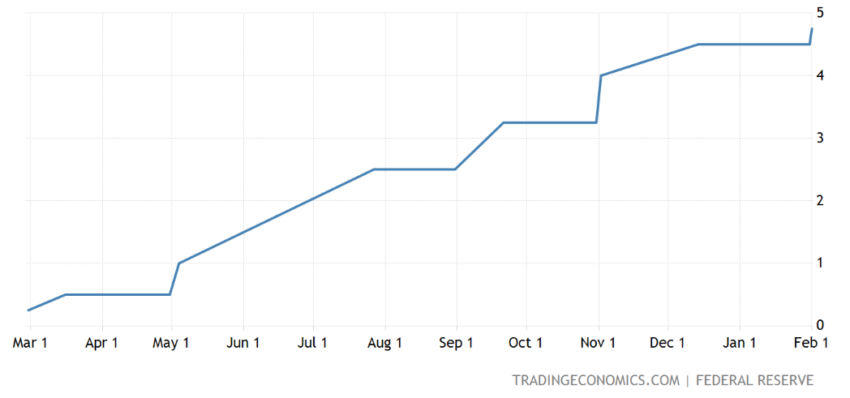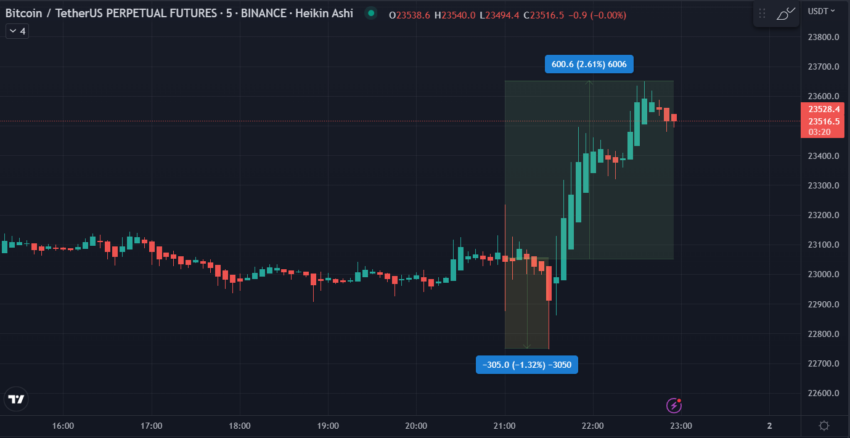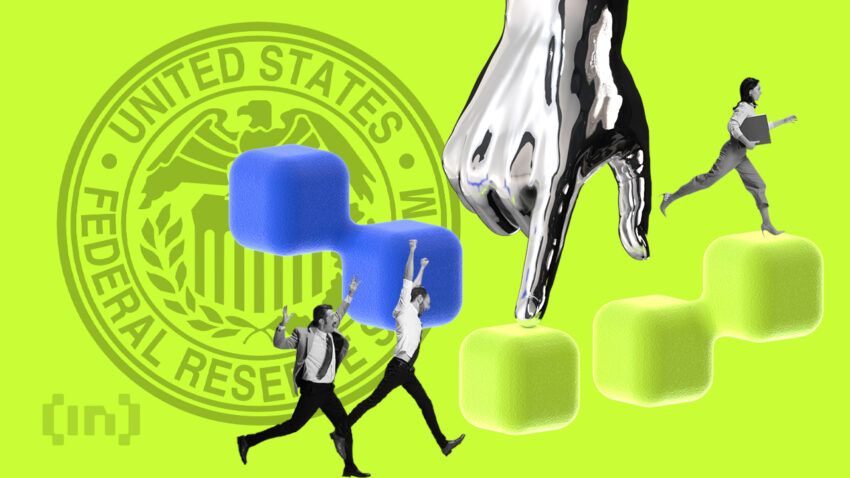The Federal Reserve increased interest rates by 25 basis points on Feb. 1, 2023, taking the U.S. Federal Funds rate to between 450 and 475 basis points.
The latest increase follows a 50 basis point increase in Dec. 2022 and a 0.75% hike in Nov. 2022.
Fed Chair Says FOMC not Swayed by Short-Term Data
While acknowledging the effects of its recent rate hikes on the economic slowdown, Fed Chair Jerome Powell said that the Open Markets Committee would not alter its course until it sees sustained changes to macroeconomic conditions in the U.S.

He added that a further rate increase would likely occur at the next FOMC meeting in March, with a pause unlikely in 2023.
“We will need substantially more evidence to be confident that inflation is on a sustained downward path,” Powell stressed. Powell added that continued quantitative tightening would permit slow but positive economic growth in the United States.
After Powell’s speech, Bitcoin fell briefly to below $23,000, while Ethereum fell briefly to $1,556 before surging to above $1,631. XRP behaved similarly, dropping from $0.404662 to $0.398515 before recovering 1.8% to $0.405687. Bitcoin later rallied to almost $23,500 as markets shook off the prospect of further rate hikes in 2023, albeit at a slower pace.

Equities markets behaved similarly, as the S&P 500 recovered from an initial 1% decline. The Nasdaq rose 1.9% from an initial drop following the Fed announcement.
Central Bank Likely to Keep a Close Watch on Labor Data
Before the announcement, the Wall Street Journal’s U.S. economic policy correspondent Nick Timiraos predicted that some of the Fed’s influential staff would adopt a broader view rather than being influenced by the recent cooling in prices given by the lower Consumer Price Index and Personal Consumption Expenditure in Dec. 2022.
This view, which looks at whether the economy is operating above or below its capacity, would have focused on the tightness of the U.S. labor market, with the lowest unemployment rate in 50 years. Powell stressed that there are currently more jobs than workers, and wage growth is elevated. Higher wage growth means companies can pass off wage gains to consumers, elevating the final price for the goods or services they provide.
If wages continue to grow unabated, inflation will continue to remain elevated.
Post-pandemic, mathematical models like the Phillips curve, which correlates rising wages with a drop in unemployment below a certain level, have become less reliable, making it difficult to predict the effectiveness of quantitative tightening.
Accordingly, the Fed will likely need to continue relying on monthly jobs data to determine the pace and aggression of future hikes.
For Be[In]Crypto’s latest Bitcoin (BTC) analysis, click here.
Disclaimer
In adherence to the Trust Project guidelines, BeInCrypto is committed to unbiased, transparent reporting. This news article aims to provide accurate, timely information. However, readers are advised to verify facts independently and consult with a professional before making any decisions based on this content. Please note that our Terms and Conditions, Privacy Policy, and Disclaimers have been updated.


